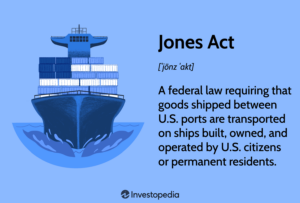
Yet Another Drug War Failure
by Ted Galen Carpenter, antiwar.com, April 23, 2024.
Excerpt:
Despite such spectacular policy failures, drug warriors in the United States and other countries cling to hard-line strategies and refuse to face an inconvenient economic truth. Governments are not able to dictate whether people use mind-altering substances. Such vices have been part of human culture throughout history. Governments can determine only whether reputable businesses or violent criminal gangs are the suppliers. A prohibition strategy guarantees that it will be the latter – with all the accompanying violence and corruption. The ongoing bloody struggles among rival cartels to control the lucrative trafficking routes to the United States merely confirm that historical pattern.
And a great last line:
Ecuador is just the most recent proof. Prohibition is akin to expecting long-term victory in a game of Wack-a-Mole.
I’m a little picky about language. I would have said “Ecuador is just the most recent evidence.”
The Jones Act: Consequences of a Destructive Industrial Policy
by Timothy Taylor, Conversable Economist, April 24, 2024.
Excerpt:
The United States has had an industrial policy aimed at boosting its domestic shipbuilding industry since the passage of the Merchant Marine Act of 1920, commonly known as the Jones Act. Whatever the arguments for the passage of the bill a century ago, it has over time been a disaster for the US maritime industry, and continues to impose significant costs on other parts of the US economy. Colin Grabow goes through the arguments in “Protectionism on Steroids: The Scandal of the Jones Act” (Milken Institute Review, Second Quarter 2024, pp. 44-53).
And:
2) The higher costs of Jones-Act-compliant US shipping naturally impose heavy costs on places like Hawaii, Alaska, and Puerto Rico. Weird consequences result, and Grabow provides a number of examples. Puerto Rico gets its liquified natural gas from Nigeria, because there are no Jones-Act-compliant US ships to transport natural gas within the United States. US lumber producers complain that they have a disadvantage vs. Canadian firms, because the US lumber producers must use higher-cost Jones Act ships to send their products to US destinations, while Canadian lumber producers can use cheaper international shipping companies.
It’s Time to Take a Hard Look at Public Libraries
by Marc Joffe. Cato at Liberty, April 25, 2024.
Excerpt:
Like mom and apple pie, the public library seems so intrinsically good that it should be beyond criticism. But like any institution that consumes millions of tax dollars, public libraries should not be free from scrutiny. And the facts are that neighborhood libraries have largely outlived their usefulness and no longer provide value for the public money spent on them.
Consider the situation in Northern California, for example. In this fiscal year, four Bay Area counties (Alameda, Contra Costa, San Mateo, and Santa Clara) are collectively spending $270 million to operate their library systems, with some cities chipping in extra to finance extended operating hours. Contra Costa County is spending $20 million of state and county funds to build a new library in Bay Point, and El Cerrito voters may see a sales tax measure on the November ballot, part of which will go to building a new library as part of a transit‐oriented development near a Bay Area Rapid Transit station.
The public library’s historical functions of lending physical books and enabling patrons to view reference materials are being made obsolete by digital technology. An increasing proportion of adults are consuming e‑books and audiobooks in addition to or instead of printed books, with younger adults more likely to use these alternative formats.
There’s a kind of racism embedded in DEI
by Erec Smith, Boston Globe, April 19, 2024.
Unlike traditional racism — the belief that particular races are, in some way, inherently inferior to others — prescriptive racism dictates how a person should behave. That is, an identity type is prescribed to a group of people, and any individual who skirts that prescription is deemed inauthentic or even defective. President Biden displayed prescriptive racism when he said “If you have a problem figuring out whether you’re for me or Trump, you ain’t Black,” a statement that implicitly prescribes how Black voters should think.
“Prescriptive racism” is probably a new term for most readers, but it’s not exactly a novel concept. It has a historical analogue: the concept of the “uppity Negro,” a Black person who dared to act like an equal to whites. One of this term’s most famous usages is attributed to Lyndon B. Johnson, who apparently said: “These Negroes, they’re getting pretty uppity these days and that’s a problem for us since they’ve got something now they never had before, the political pull to back up their uppityness.” Clearly, “uppity” was meant to describe people of color who exercised “agentic” power — that is, they were competent and did not need a white person’s heroism. These “uppity” Black people were forgetting their scripted lines, as it were.


READER COMMENTS
Richard W. Fulmer
Apr 28 2024 at 3:00pm
One would think that concerns about climate change would have put the nail in the Jones Act’s coffin. Not only has the 104-year-old law all but destroyed the country’s shipbuilding industry and raised transportation costs for domestic manufacturers, putting them at a disadvantage with foreign competitors, but it has also forced Americans to move goods by truck and train rather than by ship. As a result, we burn far more fuel and produce far more carbon dioxide than necessary.
Unfortunately, once a law is on the books, beneficiaries fight tooth and nail to keep it there.
Industrial policy advocates should be asked to show that their proposals will work, not just in the short term, but throughout the next century.
Richard W Fulmer
Apr 29 2024 at 2:31pm
DEI is the answer to two of the Left’s problems:
Demographics – Though I’m now officially “elderly,” I was only 9 years old when Jim Crow ended and 12 when Martin Luther King was assassinated. How much guilt can you lay on me, much less my children and grandchildren, for the outrages of Jim Crow and King’s murder? Most of the people responsible are dead. DEI solves the problem by asserting that racism is inherent in the system as “proven” by disparate outcomes among ethnic groups and that all white people benefit from this system.
Progressive Policy Failure – After over 50 years and some $25 trillion, the poverty rate is only a bit lower than it was when the Great Society programs were instituted. Worse, the programs wreaked havoc on families in general and black families in particular. As Walter E. Williams observed, “The undeniable truth is that neither slavery nor Jim Crow nor the harshest racism has decimated the black family the way the welfare state has.” The fatherlessness that the programs fostered strongly correlates with increased drug abuse, suicide, imprisonment, school dropout rates, and sociopathy. Progressives have tried to salvage their beliefs by arguing that their policies failed because America is far more racist than even they had believed.
David Q
May 1 2024 at 11:41pm
Mr. Fulmer, I’m both intrigued, interested, and mildly skeptical of the estimable Walter Williams’s strong statement.
What source backs up the claim? American slavery didn’t destroy black families more than the American welfare state? Is Dr. Williams excluding the death rate of the middle passage? I presume Dr. Williams has a trove of data causing him to say “undeniable,” but before I quote him, I’d like to see some of the data for myself.
Do you recall the book or chapter or article that is the source of this quotation?
Richard W Fulmer
May 3 2024 at 11:17am
The quote came from Dr. Williams’ essay, “The Welfare State’s Legacy.” See also his piece, “How Much Does Politics Count?” In addition, you might refer to Jason Riley’s book, Please Stop Helping Us: How Liberals Make It Harder for Blacks to Succeed, and Thomas Sowell’s treatment of the minimum wage law’s disparate impact on blacks in his book, Basic Economics (pages 232-233). Amity Shlaes’ Great Society: A New History is also a good resource.
I think that the biggest impact was the welfare state’s destruction of the family as documented in the report, “Family Breakdown and America’s Welfare System.” Here’s a slice:
The results have been catastrophic. Study after study shows the impact of fatherlessness on children:
– 85% of currently imprisoned youths grew up without fathers.
– 70% of male sociopaths grew up without fathers.
– 70% of youths currently in state-operated correctional facilities grew up without fathers.
– Children from fatherless homes are twice as likely to drop out, twice as likely to commit suicide, and far more likely to abuse drugs.
– Girls who grew up without fathers are four times more likely to become mothers before the age of 20.
– According to Chicago Police Department records, the neighborhoods with the highest murder rates are also the neighborhoods with the most births to single mothers.
All of this does exclude middle passage deaths and focuses on the plight of blacks once they reached North America.
David Q
May 9 2024 at 9:52am
Thank you! I’ll read the articles soon. The books will take a while before I get to them. Thank you again!